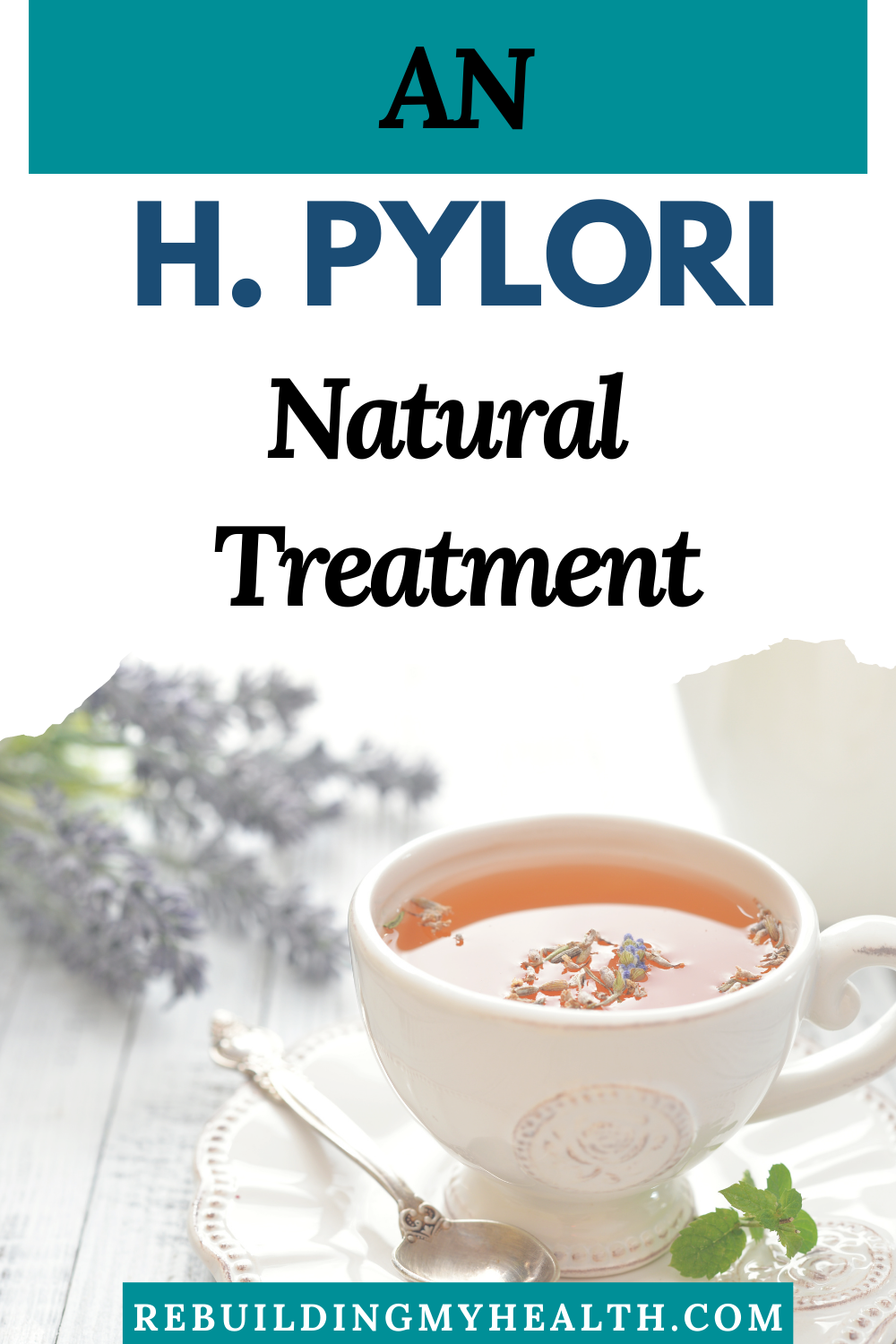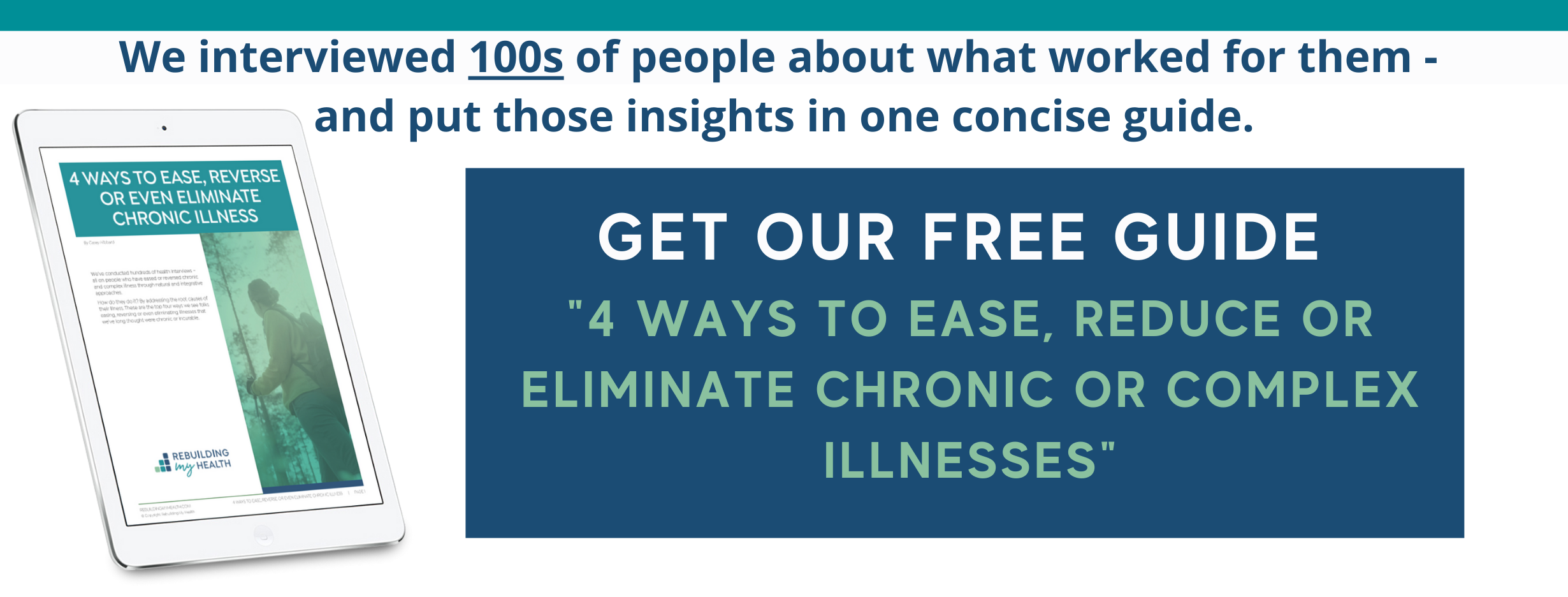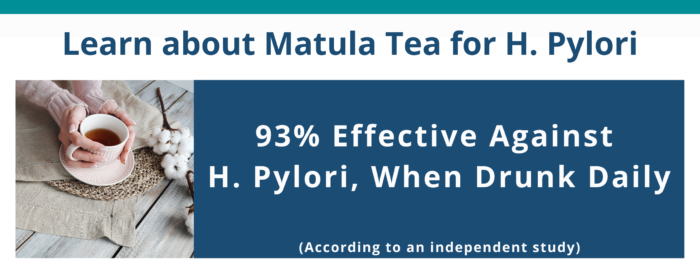When H. Pylori Hit, Wisconsin Woman Knocked It Out
Following gall bladder removal, Sasha experienced a slew of new digestive symptoms. Testing finally uncovered the cause: H. pylori. With a wholly natural approach, she eliminated the bacteria and her symptoms while simultaneously improving her Hashimoto’s numbers such that she could reduce the dosage of her thyroid prescription.
Sasha thought she was on her way to a more stable gut.
It was 2012 and she had just removed the source of much pain and discomfort – her gall bladder.
But in the months and years that followed, she was disheartened to experience a slew of new symptoms, including diarrhea and food sensitivities. She ate cautiously, never sure which foods might set her off.
Researching online, she learned that what she experienced was actually pretty common following gall bladder removal.
“Doctors said I wouldn’t even notice that it’s gone,” she recalls. “But removing it introduced a whole host of other issues. I read that, for about 30 percent of people who have the surgery, digestion changes a lot, but that was not anything anyone talked about before my surgery.”
Uncovering a Cause: H. Pylori
For help, Sasha visited her gastroenterologist, who ordered a round of tests…all of which came back within normal ranges.
On her doctor’s suggestion, she started the Low FODMAP diet, which eliminates foods such as onions, garlic and avocado, which may trigger IBS (irritable bowel syndrome) symptoms.
But if anything, Sasha felt worse on the diet.
While researching IBS online, she came across a digestive blog written by Angela Privin of Do It Yourself Health, a health coach who had resolved her own gut issues successfully.
Based on the blog, Sasha reduced her sugar and gluten intake and actually felt better for a while – until nausea and vomiting joined her list of symptoms.
An H. Pylori Natural Treatment
Sasha reached out to Privin for help.
The health coach suggested further testing, however, Sasha wasn’t so sure. Testing hadn’t turned up anything in the past. Instead, she gave the diet more time – until she couldn’t bear the discomfort any longer.
Finally, she agreed to more testing, starting with a breath test for small intestinal bacterial overgrowth (SIBO). Fortunately, that came back negative.
A stool test, however, uncovered high levels of the bacteria Helicobacter pylori (H. pylori).
When H. pylori lives in the digestive tract, it can cause a number of problems, including nausea, burping, bloating, abdominal pain, diarrhea, fatigue and more. And according to the Centers for Disease Control (CDC) and Prevention, this bacteria is actually the root cause of peptic ulcers.
It’s estimated that two-thirds of the world’s population has these germs in their bodies, however, many will never experience symptoms. Sasha was one of the unlucky ones.
As for testing, that can be tricky. Privin says that all forms of testing for H. pylori can potentially produce false negatives. In fact, previous tests in the gastroenterologist’s office had turned up negative.
“GI Map testing is more accurate because it uses PCR DNA technology that is super sensitive,” Privin says. “Yet it doesn’t always pick up H. pylori if it’s buried under biofilm. We use clues about certain parasites and bacteria to figure out if H. pylori is there and hiding. Eventually, it unearths itself.”
Treating H. Pylori without Antibiotics
With help from Privin, Sasha began supplements and dietary changes to knock out H. pylori. That included mastic gum and deglycyrrhizinated licorice (DGL) for the first two months.
Within a few weeks, Sasha saw her symptoms subside. After two months, she switched to oregano oil and GI Microb-X supplements.
As for diet, Privin recommended that Sasha actually expand her repertoire. She focused on heavy amounts of vegetables, especially greens.
Before, she’d stopped eating greens because they irritated her gut. This time, she began cooking her greens and found she could tolerate them.
“To have healthy gut flora, I needed to eat a variety of vegetables,” she says.
She also eliminated sugar, gluten and most grains.
After a few months, Sasha retested for H. pylori and was relieved to learn the test was negative.
All that work also brought an unexpected benefit. Sasha had been on prescription medication for Hashimoto’s disease for some time. With this autoimmune condition, antibodies against the thyroid gland can lead to chronic inflammation and hypothyroidism.
But with the supplements and diet, Sasha’s thyroid numbers improved enough that her doctor lowered the dose on her thyroid medication.
“Getting rid of the H. Pylori helped my immune system work better, in addition to helping with digestive issues,” she says.

Next: Taking on Candida Overgrowth
Sasha’s recovery continues. Testing also uncovered high levels of the yeast Candida, which Sasha had suspected all along.
Prior to gall bladder surgery, her diet had long been rife with sugar and carbs, which feed yeast.
To address that, she became even more strict about her diet, even eliminating dark chocolate and dried fruit.
For Candida, she rotated a variety of supplements to prevent the yeast from adapting to them. Those included taking olive leaf concentrate continuously and then alternating several different antimicrobial supplements every few days. She also switches a couple of different probiotics each month to introduce different strains.
Privin additionally recommended a supplement for estrogen dominance.
These days, Sasha has eliminated her uncomfortable gut symptoms, although she continues to work on reducing Candida overgrowth. For that, she remains on a veggie-heavy, low-sugar, grain-free diet.
“It’s not part of my daily worries now – how I’m going to feel or whether I’ll need to run to the toilet,” she says.
Her ultimate goal is to improve her immune system such that can discontinue her Hashimoto’s meds.
Along with diet and supplements, Sasha added essential self-care practices.
“I spend time outside, listen to guided meditations, do yoga and go to bed on time,” she says. “I wasn’t getting enough sleep. If you fill your bucket with stress, you have to empty it.”
Don’t Guess. Instead, Test
Prior to developing IBS, she had never really ventured beyond conventional medicine. However, she found doctors were not helpful in addressing her symptoms.
“Once my gall bladder was taken out, doctors had very little to offer,” she says. “They acted like, ‘OK, your system works differently now and is gonna be like that forever.’ That pushed me to look for natural options.”
Her gall bladder removal, likewise, is now something she questions.
“For some people, gall bladder issues are life-threatening and it has to come out, but that was not my case,” she says. “If I had known what I know now, maybe I wouldn’t need surgery. Maybe if I’d started to eat right, it would have been OK.”
Her advice to others? Don’t guess what’s going on. Get testing.
“Sometimes I was doing things that were not right for me, like the Low FODMAP diet,” she says. “Do a test, figure out what’s wrong and fix that instead of trying different approaches on your own.”
If you liked this story, you might also enjoy: How I Beat H. Pylori Naturally or A Review of Matula Tea for H. Pylori.
The information on this site is for educational and inspirational purposes only and is not intended to replace the advice of qualified professionals. Keep in mind that what works for one person may not work for another. Always consult your healthcare practitioners before beginning new approaches or treatments. Some links on Rebuilding My Health may be affiliate links. This means that we may receive a commission - with no additional cost to you - if you make any purchases using those affiliate links. Rebuilding My Health is a participant in the Amazon Services LLC Associates Program. Learn more.



